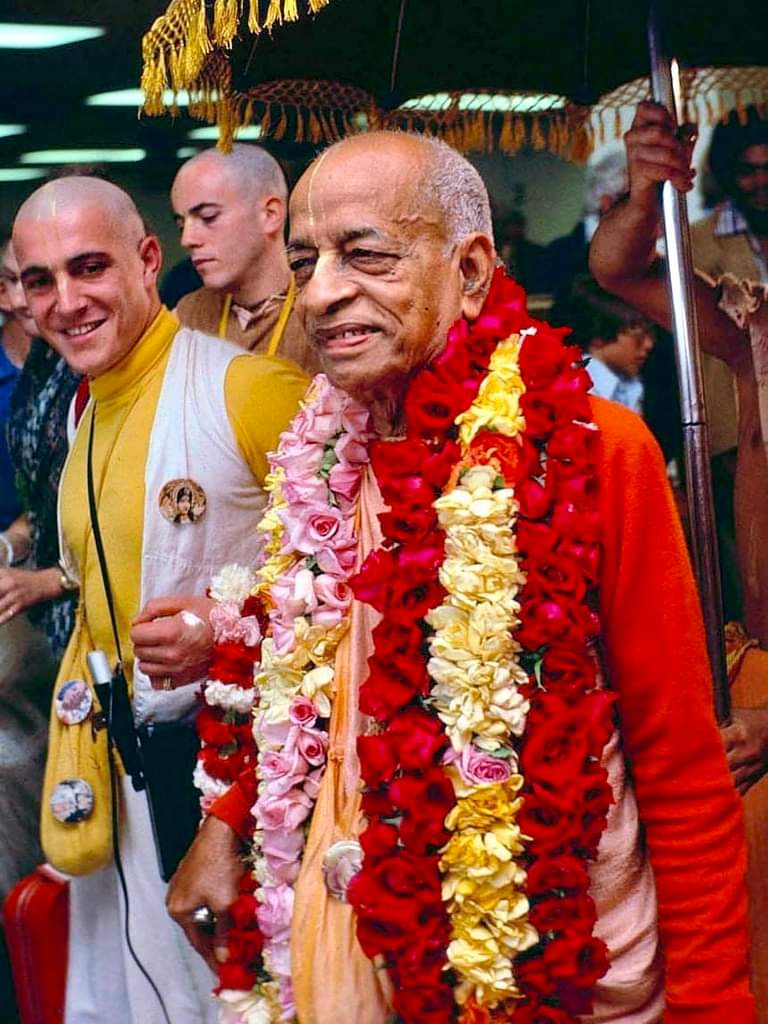One point that we often come across is statements from other Vaishnavas as well as translations or interpretations of passages from previous acaryas that appear to contradict points made by Srila Prabhupada. What to do in such cases?

First of all, there is a hierarchy that should be observed. Prabhupada is one of the main acaryas of our sampradaya, and surely the most exalted in recent times. Other Vaishnavas may be very senior from our point of view, but they are still junior if compared to Srila Prabhupada. Therefore, if one of them starts to contradict points made by Prabhupada, this is something that should put their qualification in question, not the qualification of Prabhupada, who is in this case the higher authority.
However, devotees often navigate through it in a few different ways.
The first is by claiming that Prabhupada spoke just the ACBD and they are bringing higher teachings. Usually, they don’t say this directly themselves, but they say it to their disciples, who in turn spread the message. In the end is the same. I don’t think someone who claims this should be taken seriously.
The second is by using the arguments that the books have been changed and therefore they don’t convey what Prabhupada said. In this case, one should be challenged to provide evidence, like an older edition or manuscript that indeed proves that there was a modification that changed the meaning of the text. The onus of proof in this case falls into him.
The third is by followers claiming that the senior in question is a pure devotee and therefore he is speaking from the absolute plane and can’t be wrong. Since many will fear arguing against a “pure devotee”, and thus committing offenses to a supposedly great soul, this often wins the argument. The point is that one can’t be accepted as a “pure devotee” or as an incarnation just based on the words of his followers, but only by his symptoms and empowerment. Prabhupada showed it by successfully spreading Krsna Consciousness in the West and then back to India, writing his books, and so on. If another supposedly pure devotee is speaking against him and trying to diminish his position, the real qualifications of such a “pure devotee” should be questioned based on his practical actions. Just speaking well and being able to amass a few fanatical disciples is not proof of anything.
Indeed, we are still a long way from properly understanding everything Prabhupada taught in his books and it is quite possible that a number of points we accept as truth in our movement may not be the proper understanding. Our comprehension of the teachings of Prabhupada is still evolving. However, discussions regarding this should be conducted within the purview of Prabhupada’s teachings. We should apply the principles Srila Baladeva Vidyabhusana gives in his Govinda Bhasya (and Jiva Goswami also explains in his Sat-Sandarbhas), interpreting quotes in the context of the whole passages, and passages in the context of the whole book and the general teachings, finding interpretations that don’t contradict other passages. The hierarchy of books, classes, and letters should also be observed. Letters and conversations often contain provisional instructions and can’t be used to sustain anything unless in harmony with general passages from books. Lectures as more important than letters, but the instructions in the books should receive precedence.
We can see that the ritvik theory for example is based on just the interpretation of a few letters and conversations. It doesn’t find support in the books or even lectures, which in fact directly contradict it. Proponents of incorrect theories often try to put the instructions in letters and conversations on the same level as the instructions in the books, which causes all kinds of contradictions. There are letters and conversations that authorize devotees to divorce, and even to eat meat in certain circumstances. It doesn’t mean we should all do it.
Works of other acaryas should not be put against the works of Prabhupada. Rather, they should be taken as just explaining the same topics from different perspectives. Most of the works of previous acaryas were written in Sanskrit, which can often be interpreted in many different ways. When a translation appears to contradict a passage from Prabhupada, the quality of the translation or interpretation should be questioned. More often than not it is just a case of a translator interpreting the text according to his own bias, and thus failing to convey the proper meaning of the text.
